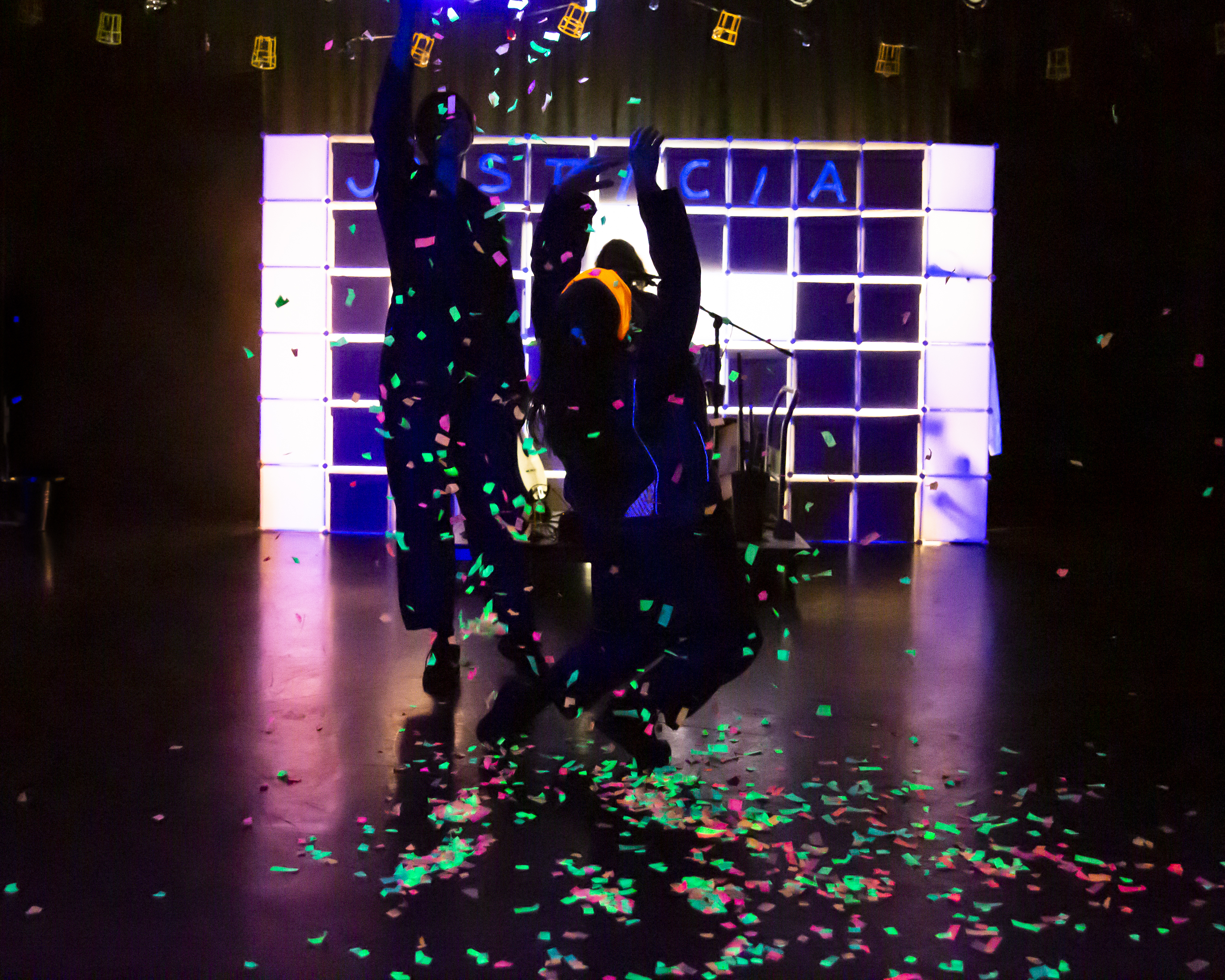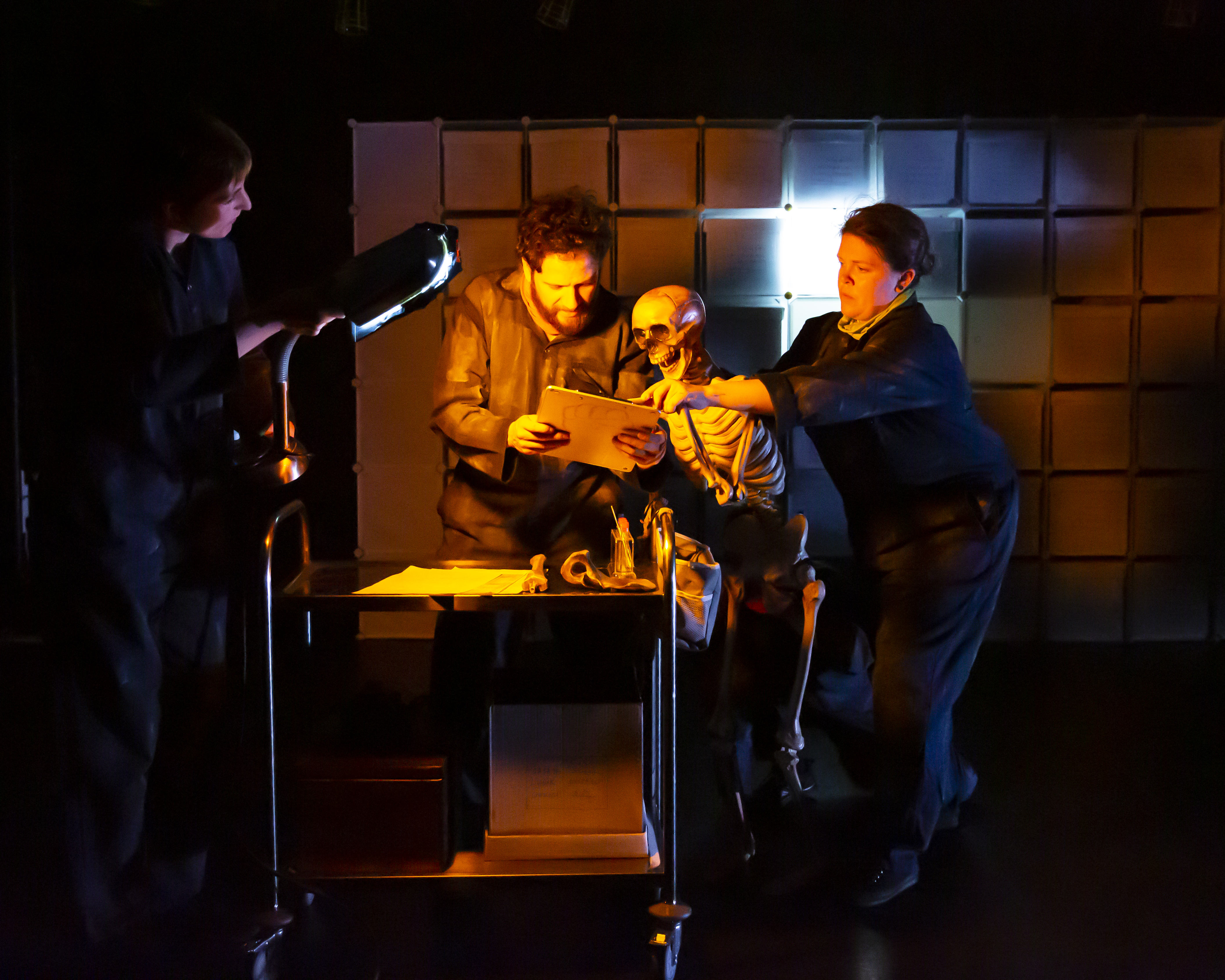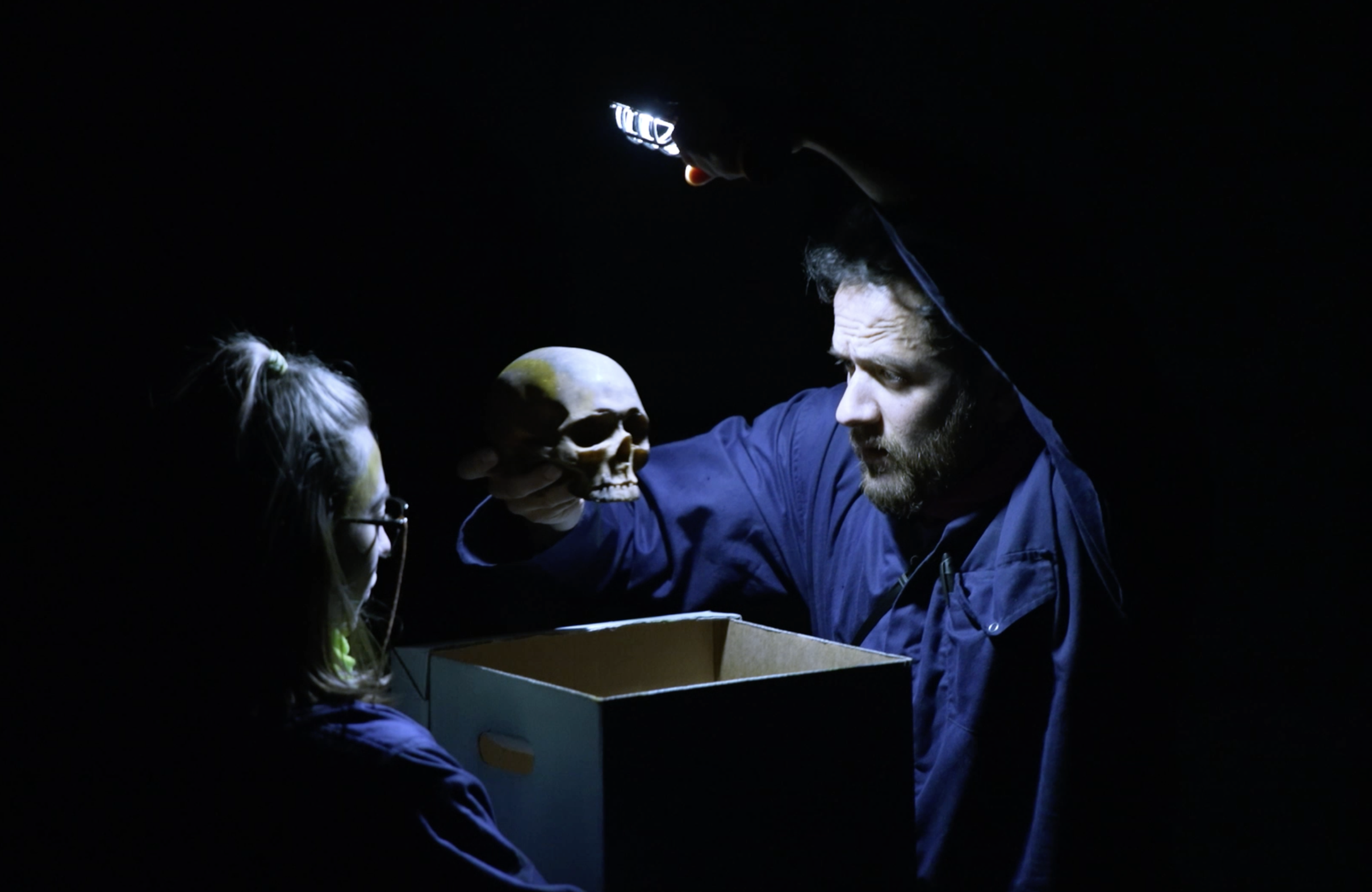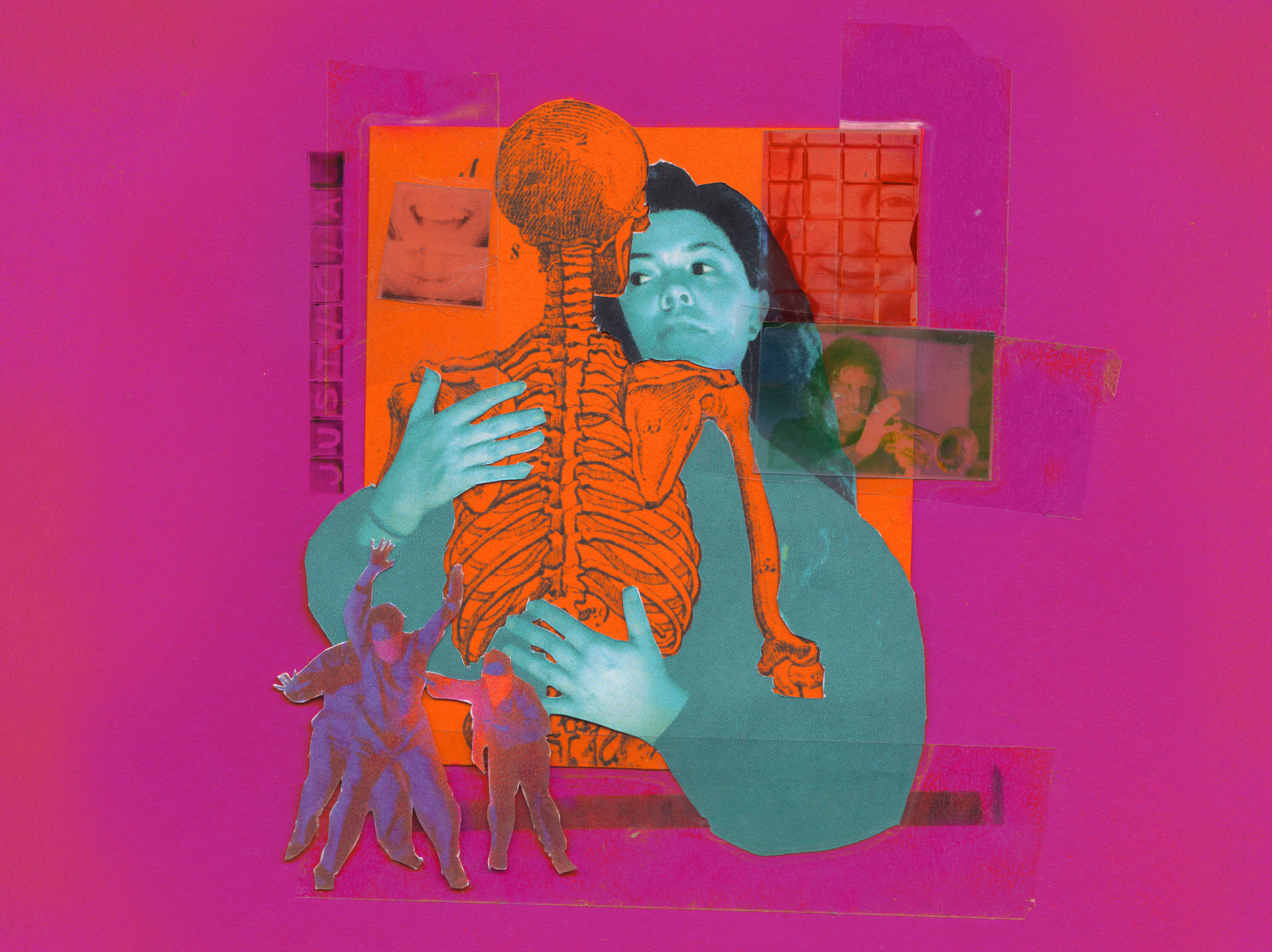A conceptual piece with relatively little dialogue, Director Ramon Ayres synthesises REWIND as “a show about resistance.” Whilst it focuses in on particular stories of oppression and the struggle against it, maintaining an understanding of the colossal scope of the subject has been a key concern of the creative team, Ephemeral Ensemble.

Whilst it is the Madres de Plaza de Mayo depicted on stage, Ayres describes how, when it comes to understanding historical defiance of injustice, “the figure of the mother was always there.” In this show, the personal is political, and the specific is universal.
The greatest and most distinctive aspect of this production is its employment of sound and lighting. Making effective use of a looper pedal and projector, the multitalented performance time brings forensic anthropology to life. “All of it is live and nothing is prerecorded,” says Ayres, and not only is this incredibly exciting to watch, it is also a striking creative device.

Watching the play being constructed in real time emphasises the fragility and the humanity that lie at the heart of stories of oppression. Ephemeral Ensemble goes further than pulling back the curtain; the “behind the scenes” is not only incorporated into the main action, but it is given visual priority.
This is undeniably the unique selling point of the show. The process is the story. It is an absolute credit that they have not dismissed the potential impact of honing in on the technical and the analytical in telling stories that know no logic. This is explored particularly through use of bones on stage: we understand them originally simply as evidence of dead bodies, but as the characters pay closer attention, the emphasis shifts from loss of life to proof of life having been lived and snatched too soon. The juxtaposition of order and method with chaos and turmoil is a deeply impactful one.

This “multidisciplinary take on making a narrative”, as described by Ayres in interview, is not at all hollow or opportunistic - it is clear that they did not base this around physical theatre simply because it suited them, but that in fact there was a careful and considered journey which resulted in the happy union of this form of expression with this subject matter. It is “science combined with history combined with memory combined with politics,” , explains Ayres.
Sitting in the closely-packed New Diorama theatre, it is an intense watch. It was important to the creative team to “leave space for interpretation for the audience” (Ayres), and this is definitely achieved. “We didn’t want to explain everything about dictatorship. We wanted to express this feeling that we had”, Ayres describes. The intentionality is absolutely there: the idea of universality results in predominance of visual over verbal communication, and this is very impactful as far as conveying a feeling is concerned.

Sometimes it isn’t entirely clear what is “going on” per se, and this as combined with the sensory ferocity means it is at times a pretty overwhelming audience experience. Given its subject matter, it makes absolute sense that it wouldn’t be especially relaxing or gentle - ultimately, feeling a bit uncomfortable or overloaded encourages viewers not to sit back, but to engage fully and feel the impact of what they are seeing.
“The power of image and the power of music” (Ayres) are given emphasis over the power of words, and this makes for an extremely visually and emotionally hard-hitting performance. REWIND takes stories of outrage, and uses outrage to tell them. As Ayres describes, it is empathy that he wants audiences to come away with, and his affronting production will enable just that.
REWIND is showing at the New Diorama Theatre until the 10th of February, and will be touring around the UK this Spring.















